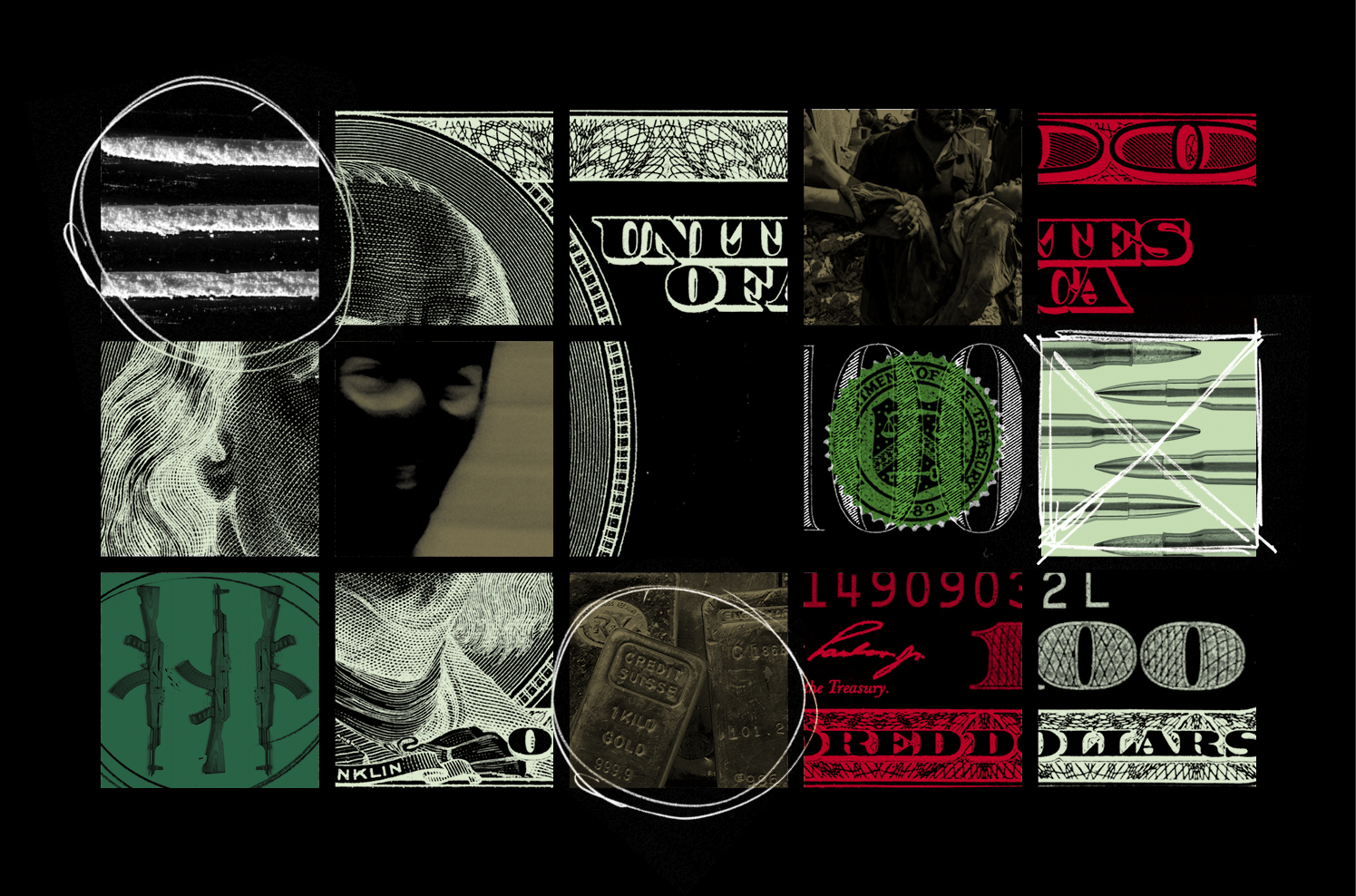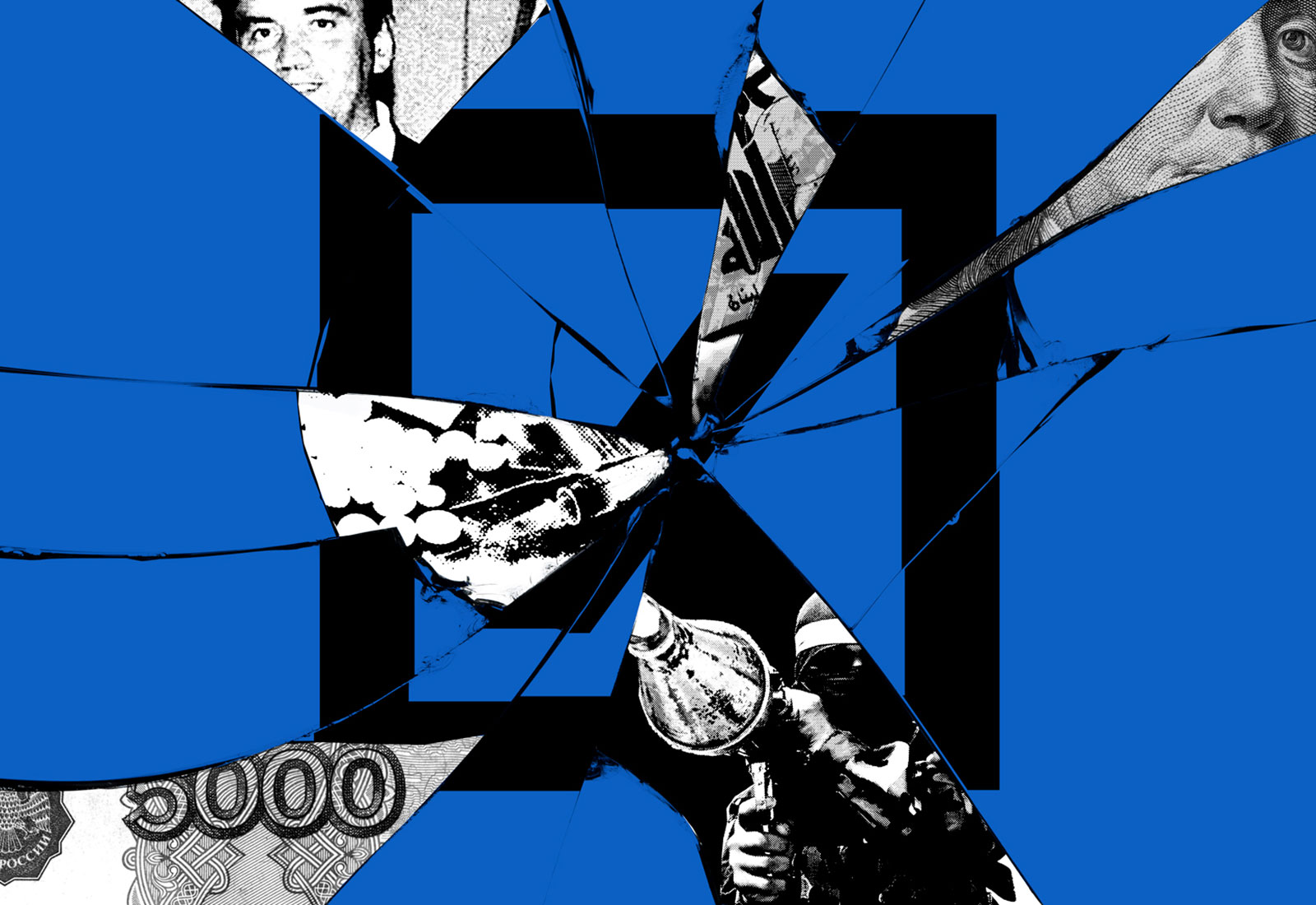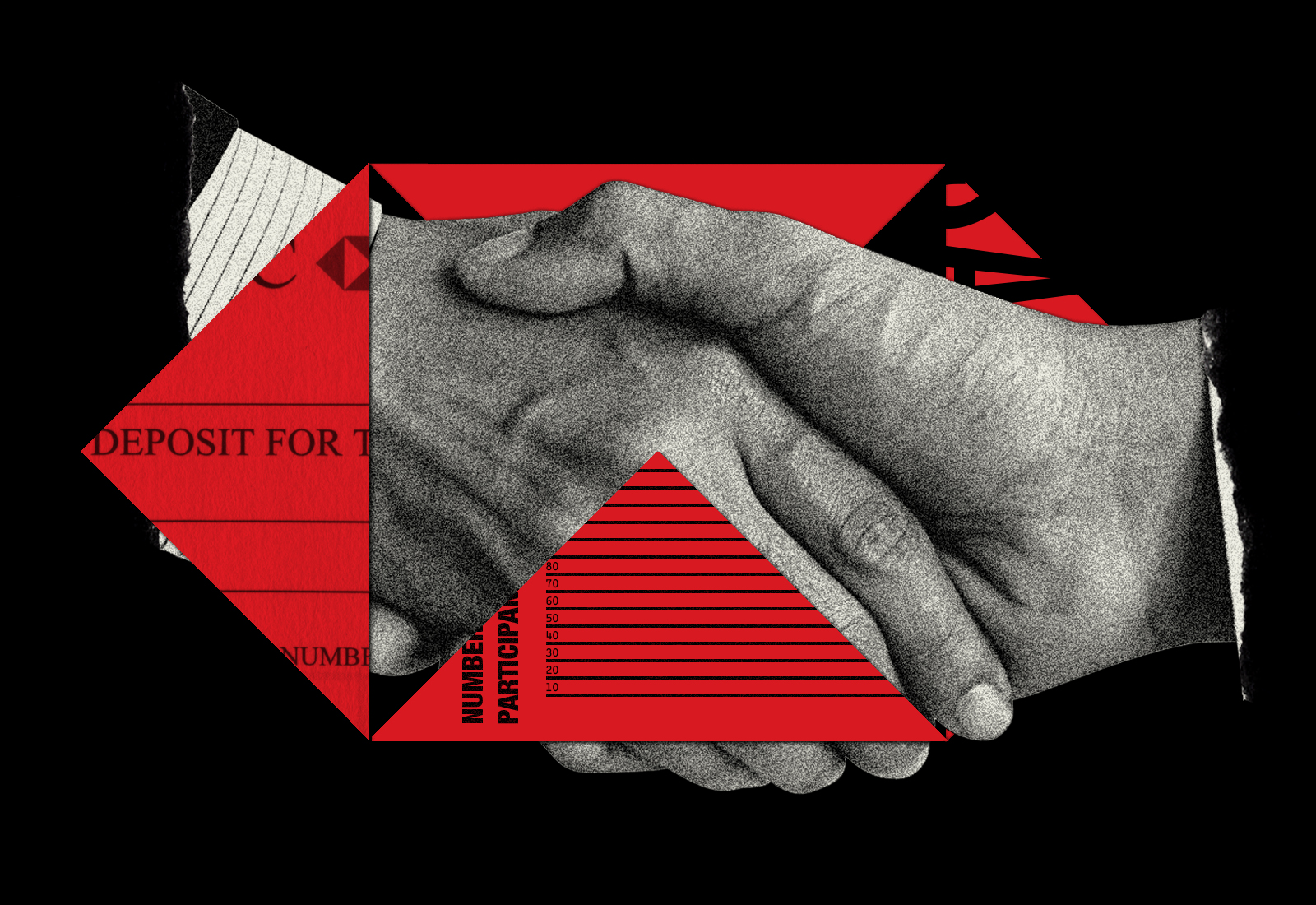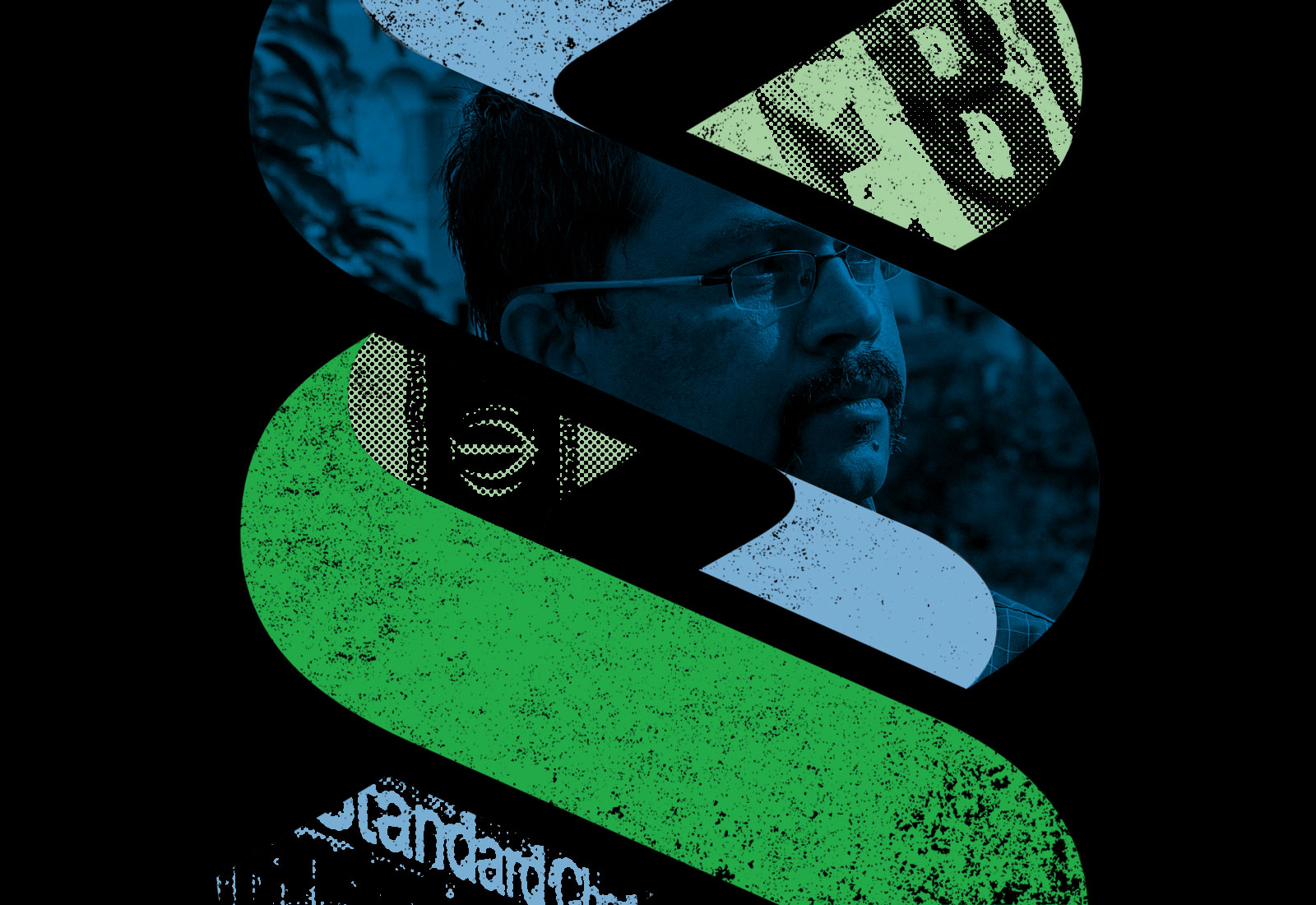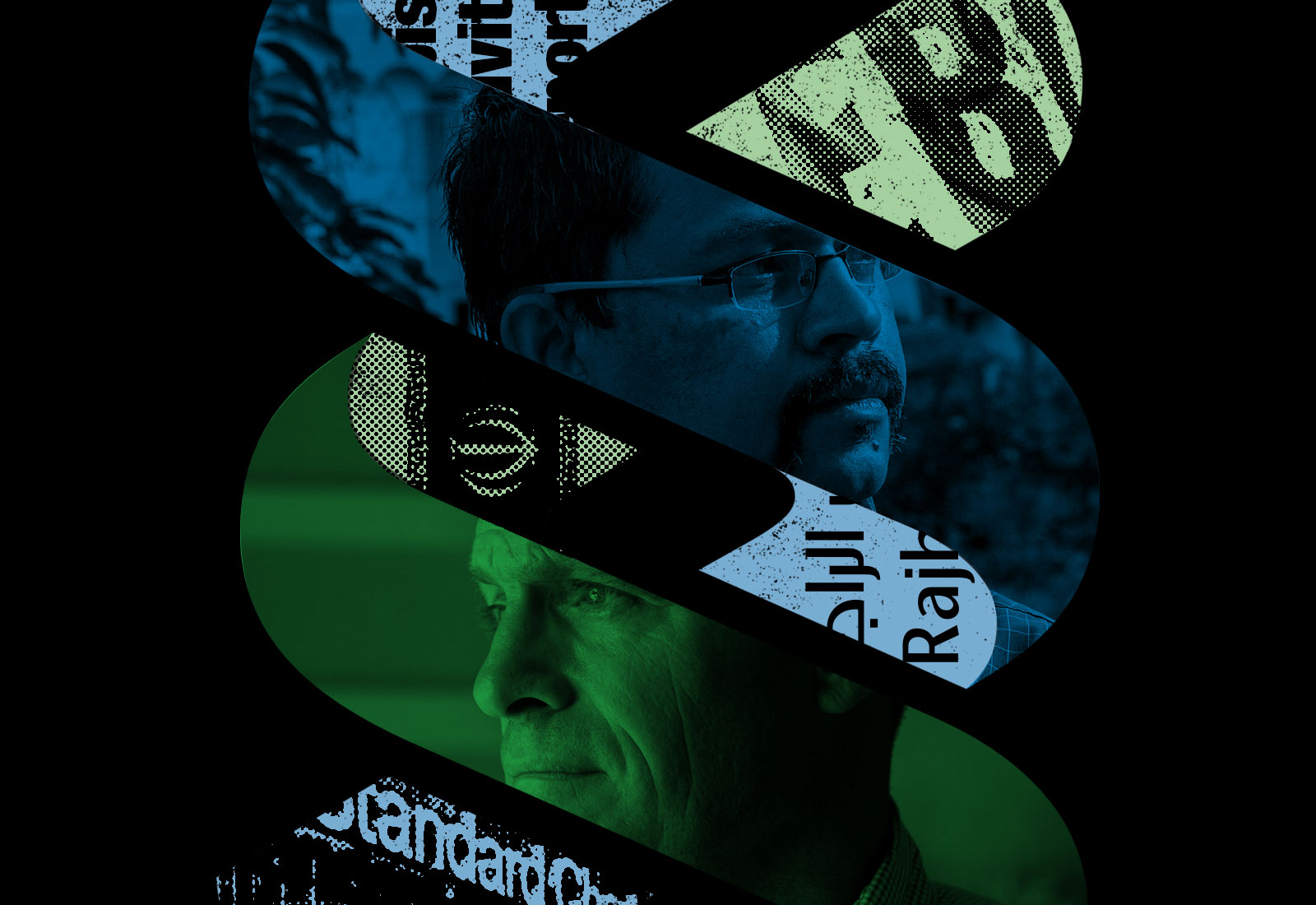On a summer morning in 2012, Anshuman Chandra read a news article about a Saudi Arabian financial institution suspected of facilitating the funding of al-Qaeda attacks, including 9/11. The bank was called Al Rajhi, and a US Senate committee cited allegations it had handled payments to suicide bombers in Somalia, Sri Lanka, India, and the Philippines.
Chandra was deeply troubled, he said, and not just because he knew people who had died in terrorist attacks. He was disturbed because Chandra worked for Standard Chartered bank, and he realized that his employer was doing business with Al Rajhi.
So Chandra warned a supervisor about what he had learned, he said, but he never heard back.
From Standard Chartered’s Dubai office, where Chandra was a client services manager, he dug deep into bank records. He later learned, examining a yearly profit report, that in 2009 alone, Standard Chartered earned $2 million from its relationship with Al Rajhi. (Al Rajhi did not respond to a request for comment.)

But that wasn’t all. Poring over Standard Chartered’s accounts, he found a number of customers in Iran, a country under US sanctions, and Chandra feared that they too had been indirectly supporting terrorist activities.
“I actually got goosebumps,” Chandra said.
This time, he decided to bypass his bosses. He turned to the US government.
By the fall of 2013, Chandra and another whistleblower, Julian Knight, had handed US authorities thousands of internal bank records that they claimed show Standard Chartered was giving safe harbor to a number of customers moving money to Iran.
The documents came at a significant time. A year earlier, the bank had acknowledged its role in concealing tens of thousands of transactions with businesses in Iran. Under threat of criminal prosecution, the bank had agreed to clean up its act.
Ultimately, the government walked away from the whistleblowers. But the two men had flagged real problems. The bank itself, confidential records show, later reported to the US Treasury that it had suspicions about at least 31 companies contained in the data the whistleblowers had handed over.
Prosecutors eventually determined in 2019 that the bank had allowed more illegal transactions for Iranian clients — including one who had been in Knight and Chandra’s documents from 2013.
Taken together, the whistleblowers’ accounts and the banks’ Treasury reports show the depth of the money laundering problems at Standard Chartered and the extent to which the US government gives big banks a pass when they break the rules.
Banks are required to file suspicious activity reports, or SARs, when they spot transactions that bear the hallmarks of money laundering or other financial misconduct. These confidential reports, which go to the Treasury Department’s Financial Crimes Enforcement Network, or FinCEN, are not by themselves evidence of a crime, but they can support investigations and intelligence gathering. The FinCEN Files investigation is based on more than 2,100 of these documents that BuzzFeed News shared with the International Consortium of Investigative Journalists and more than 100 newsrooms around the world.
After the whistleblowers passed along their records, including transaction spreadsheets and client lists, the FBI pursued an investigation. But it was short-lived. An agent who was looking into the bank said their documents did not show evidence of new illegal transactions. A judge recently issued a ruling blocking Knight from an opportunity for whistleblower compensation.
“If they analyzed the data, they could have stopped this much earlier.”
In response to detailed questions from BuzzFeed News, Standard Chartered said in a statement, “We take our responsibility to fight financial crime extremely seriously and have invested substantially in our compliance programmes.” A spokesperson added that the bank files SARs “when circumstances warrant and that means our screening and monitoring systems are working as intended.”
The bank said it employs 2,000 people worldwide to detect and report suspicious transactions, and that “U.S. and U.K. authorities have publicly acknowledged” that the bank “has undergone a comprehensive and positive transformation over the last several years.” Standard Chartered, which like all banks is prohibited from disclosing the contents or even the existence of SARs, did not address many of the specific allegations in this story.
Knight is appealing the decision on his whistleblower case. Both he and Chandra are pursuing a separate suit alleging that the bank retaliated against them for their disclosures.
They say the decision to come forward wreaked havoc on their lives — and they don’t know why the government didn’t dig deeper into their materials. “I feel betrayed,” Chandra said. “If they analyzed the data,” he added, “they could have stopped this much earlier.”
“These false allegations have been thoroughly discredited by the U.S. authorities who undertook a comprehensive investigation into the claims,” the Standard Chartered spokesperson said.
The FBI did not respond to multiple requests for comment. “The Department of Justice stands by its work, and remains committed to aggressively investigating and prosecuting financial crime—including money laundering—wherever we find it,” DOJ spokesperson Matt Lloyd said in a statement responding to detailed questions about the FinCEN Files investigation.
A Startling Discovery
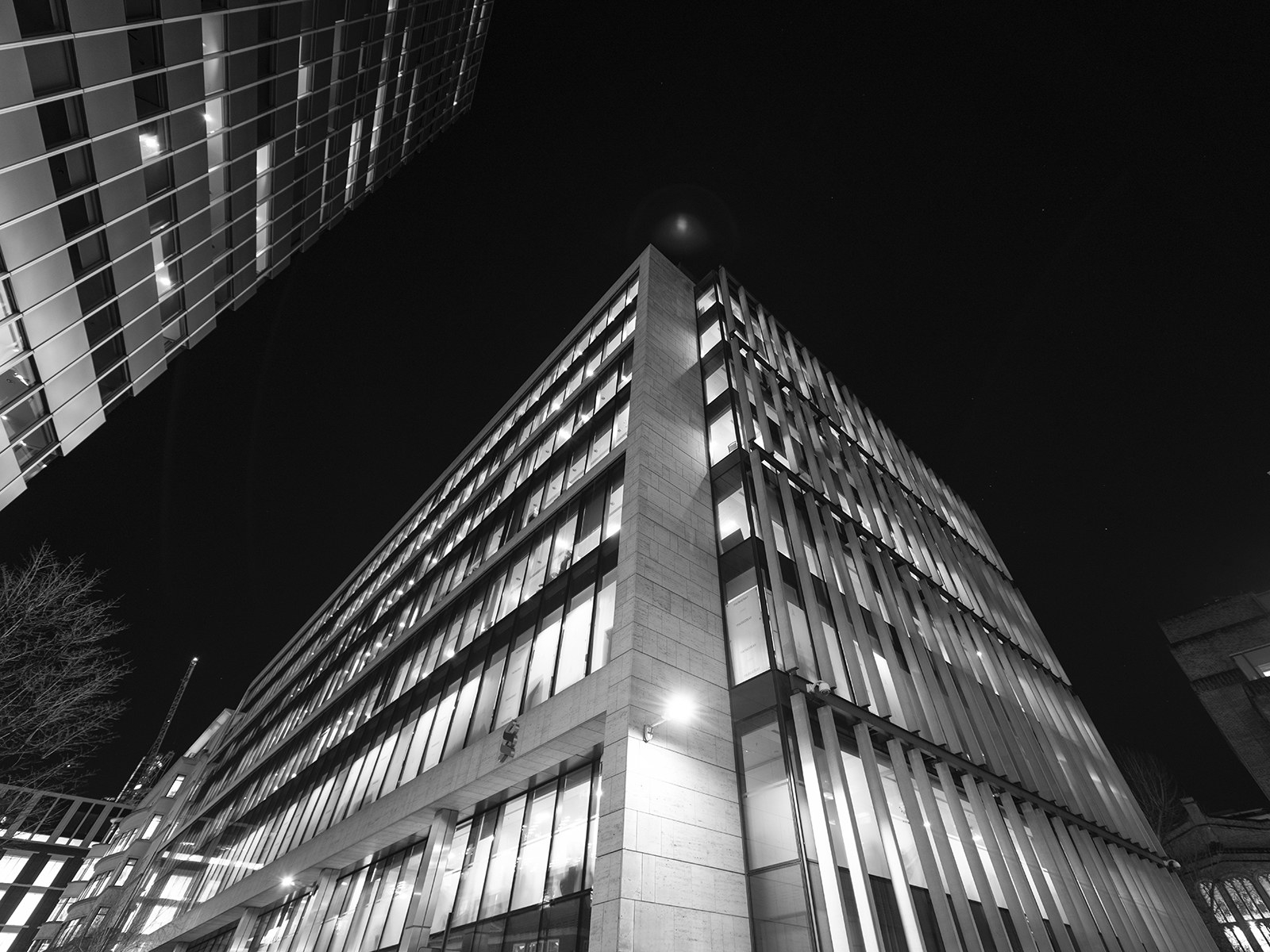
The global headquarters of Standard Chartered bank stands stolidly on Basinghall Avenue in the heart of the City of London, an imposing modern fortress of glass and steel.
The bank’s history dates back 150 years and tracks the rise of the British Empire. Standard, at the time a separate institution, banked Cecil Rhodes, the diamond baron who supported policies of racial inequality in southern Africa; Chartered financed the opium trade, ensuring that Britain profited from the drug addictions of millions in China, Hong Kong, and India. The combined companies now rake in more than $15 billion in revenue and employ 85,000 people in 60 different markets.
Standard Chartered was one of the few heavyweight banks to emerge unscathed from the 2008 financial crisis. It avoided much of the criticism its competitors received for their risky and deceptive mortgage-trading practices, and even managed to earn a profit throughout the crash. In 2012, its CEO said it succeeded because unlike its competitors, it saw “virtue in being boring.”
But in August of that year, the world learned of another side to Standard Chartered. New York state prosecutors announced that the bank had helped its clients hide at least 59,000 financial transactions, worth a quarter of a trillion dollars, that potentially violated American sanctions against Iran. The bank had made “hundreds of millions of dollars in fees” off those clients, the prosecutors said.
The bank admitted to having broken the law, but only up until 2007. The New York regulators had threatened to revoke the bank’s business charter. The punishment would effectively halt its access to the US dollar market, a death blow for a global financial institution.
But, with a promise from Standard Chartered to stay on the straight and narrow, and an outside monitor keeping a close eye on the bank, prosecutors held off bringing any criminal charges. New York state issued a fine of $340 million — a mere 1.3% of Standard Chartered’s revenue that year. The bank was allowed to continue winding down its business with a number of Iranian clients.
Meanwhile, the bank was also being investigated by US federal authorities. But Standard Chartered had a well-placed advocate.
Endanger one bank, he seemed to suggest, and the whole economy could suffer.
George Osborne, the UK’s chancellor of the exchequer at the time, wrote a letter to the Federal Reserve copying in Timothy Geithner, then the US secretary of the Treasury, to discuss his “concerns.”
The US was coming down awfully hard on the bank, Osborne said, hard enough to endanger its health. “For a systemically important financial institution,” he wrote, “this could lead to contagion.” Endanger one bank, he seemed to suggest, and the whole economy could suffer.
Geithner and Osborne were both heading to Tokyo for the annual World Bank meeting. Geithner’s briefing notes for that planned meeting, later dug up in a congressional probe, make clear that the world’s superpower believed Standard Chartered had crossed a line: “Treasury considers SCB's conduct surrounding sanctions violations to be reckless and egregious but not the worst we have encountered.”
The Department of Justice and Standard Chartered ultimately negotiated a deferred prosecution agreement, the US government’s preferred tool for getting wayward banks back on track. Standard Chartered would pay a second fine — $227 million — but so long as the bank kept its nose clean, there would be no criminal prosecution on the federal level, either, and the bank would not lose its license.
A spokesperson for Geithner told BuzzFeed News the Treasury secretaries have “no authority over criminal prosecutions” and that “such matters are handled independently by the Department of Justice and the bank regulators respectively.” The spokesperson added that Geithner “did not push for lenient treatment for Standard Chartered from the US government.”
The Handoff

Chandra was working in the bank’s Dubai office when, he said, he heard two of his colleagues talking about a former colleague named Julian Knight. They were saying he had blown the whistle on the bank.
Knight, a former flight lieutenant in Britain’s Royal Air Force, had risen to become one of the global heads of transaction banking at Standard Chartered before getting fired in 2011.
He was living in Germany when he first heard the bank was in trouble with prosecutors. Knight did not believe that Standard Chartered had stopped banking Iranian clients.
He dug out a compact disc that had all the company emails, profit reports, and transaction spreadsheets he had downloaded before leaving the bank. Through a friend, he passed it to the Treasury Department.
Those records, which have since been reviewed by BuzzFeed News, showed that Standard Chartered was working with Iranian clients after 2007. What Knight didn't know was that the government had allowed the bank to fulfill its obligations with some Iranian clients after 2007. Those clients had permission to repay their outstanding loans to the bank in currencies other than US dollars, or to withdraw their existing balances from bank accounts that were otherwise blocked by the US government.
Chandra didn’t know all those details, either. He just knew he needed to speak with Knight. Chandra said that in April 2013 he sent Knight an email and soon after that passed on the information he had gathered, with the request that it be handed to the US authorities.
He was visiting Standard Chartered’s Zambia branch when he received his first email from Matthew Komar.
“I am a Special Agent with the FBI who is the case agent on the investigation into Standard Chartered,” Komar wrote in an email obtained by BuzzFeed News. “I would like to speak with you.”
Chandra was nervous about speaking with Komar, who asked many questions, but the two stayed in touch.
“Need your help urgently for my and family’s safety.”
On October 2, 2013, a week after his first contact with the FBI, Komar gave him some unwelcome news. The FBI had let slip that it was talking to Chandra. His name was “inadvertently sent by a member of the investigative team to the Bank's counsel,” Komar wrote. He said the bank’s lawyers had promised not to share the information with their client.
Chandra had already emailed Komar, telling him about an unexpected scan of Chandra’s computer, the first of what he said were a number of strange developments at work. “I'm very worried at the moment,” he wrote.
Over the next few months, according to his emails to the FBI, he lost access to certain shared files, he had more random checks on his laptop, and his managers grew hostile toward him.
In October 2014, Chandra reported getting his first death threat. In an email to Komar, he quoted the caller saying, “We know you helped Americans, its not good and we will take care of you.”
Chandra wrote to Komar: “Need your help urgently for my and family's safety.”
Chandra said Komar suggested he call the local police. It was the last, Chandra said, that he would hear from Komar for two years.
Komar did not respond to questions from BuzzFeed News.
Chandra and Knight, angered by how they had been treated by both the bank and the FBI, turned to American courts.
In 2018, Knight filed what is known as a qui tam lawsuit under the False Claims Act. He sought compensation for assisting the US government in its prosecution of the bank for sanctions violations. But Komar testified that his information wasn’t useful, because the investigators were not able to “corroborate or validate” the whistleblower’s allegations. This past June, a judge dismissed the case.
A year after filing that lawsuit, Knight joined with Chandra to file another, this time accusing Standard Chartered of retaliating against them, “discrediting them and destroying their careers in the industry.” Knight claimed that the stress of the harassment had taken a serious toll on his health.
Standard Chartered countered that with the retaliation claim, Knight and Chandra were just looking for “another bite at the apple” after the first lawsuit went south. The bank said the two former employees were not entitled to the protections granted to whistleblowers, because the information they gave the government had no value — and even if Chandra were a whistleblower, that’s not what caused his termination. As for Knight, the bank said he had waived his right to sue when he signed his termination agreement.
The retaliation lawsuit, and any last chance of vindication from the courts for Chandra and Knight, is still pending.
But another kind of vindication had long been happening — much of it in secret.
The Bank's Own Suspicions
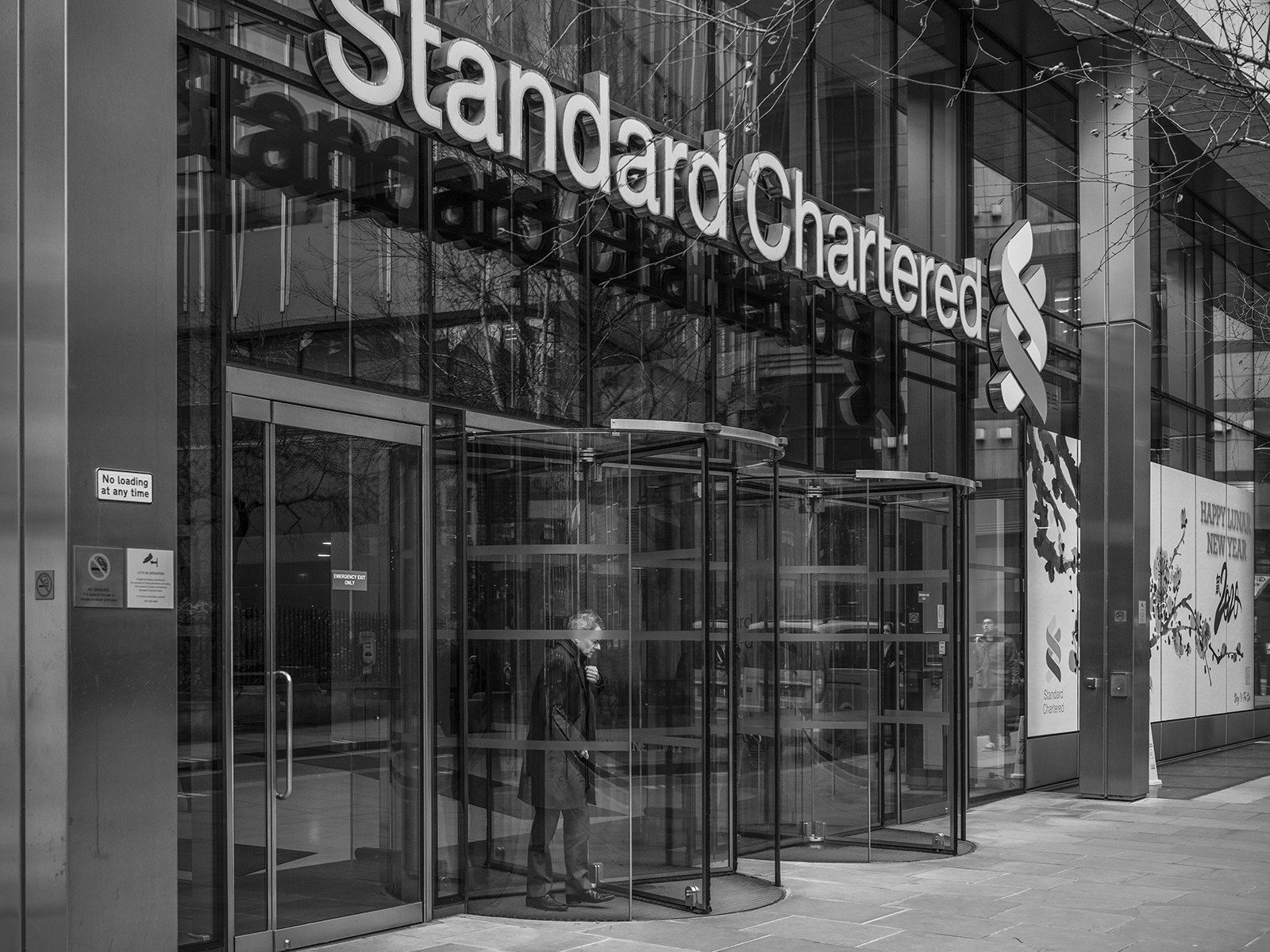
Chandra and Knight had expressed concerns about some of the bank’s customers. It turns out similar suspicions were being documented by the bank itself.
The FinCEN Files show the bank filed at least 35 SARs on 31 customers that appeared in the documents Chandra and Knight sent to the FBI in 2013. These SARs, filed after the whistleblowers had handed their information to the FBI, show the bank itself alerting the government to questions about the legitimacy of some of its business.
One of the clients included in both the whistleblowers’ documents and the bank’s reports was Al Zarooni Exchange. The US government barred Al Zarooni from the US financial system in 2015 for supporting the Altaf Khanani money laundering organization, which is alleged to have funneled "billions of dollars across the globe on behalf of terrorists, drug traffickers, and criminal organizations."
The Dubai-based company was accused by the Treasury of laundering cash for the Taliban. Two years after the sanctions were issued, Standard Chartered’s compliance staff filed a suspicious activity report showing that the bank had facilitated “multiple transactions” for Al Zarooni Exchange in 2009 and 2010. During that time, Taliban militants staged violent attacks that killed civilians and soldiers. Al Zarooni could not be reached for comment.
Another such client was a large diamond trader accused by prosecutors of black market diamond sales, tax evasion, and bribery. In a SAR from January 2017, the bank indicated it had reported the company’s transactions in multiple prior filings. Between 2014 and 2016, the SAR said, Standard Chartered had moved more than $4 billion for the company.
Some of the 35 SARs mentioning customers in the whistleblowers’ documents discussed possible links to Iran. One was suspected by the bank to have used “fraudulent documents” to hide its trade with Iran until at least 2014, according to the SAR. Another “may have sought to obfuscate” payments to Iran for the leasing of containers at Iranian airports, according to a 2017 SAR.
The SARs were being written and reviewed behind a wall of secrecy. But eventually a very public repudiation of Standard Chartered’s practices involving Iran would take place.
In April 2019, seven years after Standard Chartered entered into its deferred prosecution agreement, US Attorney Jessie Liu announced that the bank’s transactions for Iranian clients had “undermined the integrity of our financial system and harmed our national security.”
The Department of Justice stuck with the same form of punishment it had been using for Standard Chartered since 2012.
Liu’s statements came as Standard Chartered settled investigations with the Department of Justice, the New York Department of Financial Services, and the UK’s FCA.
The investigations found that senior managers in the bank’s Dubai office hadn’t blocked transactions from Iran after staff discovered dozens of clients used the bank’s internet platform known as “Straight-to-Bank” to access US dollar accounts. The bank’s compliance staff, according to the New York prosecutors, had “utterly failed.”
The Dubai office is where Chandra once worked and where he had first grown uneasy about Standard Chartered’s systems for thwarting financial crime. And the Straight-to-Bank system had been identified by Knight when he tried to call attention to problems at Standard Chartered. His documents show Knight mentioned the system in a presentation he prepared for law enforcement.
The Department of Justice stuck with the same form of punishment it had been using for Standard Chartered since 2012. It levied an array of new fines and penalties totaling $1.1 billion (less than a third of the bank’s profits that year), and extended Standard Chartered’s deferred prosecution agreement. It was the sixth time it had to be extended in the space of seven years.
In the press release announcing the new fines, Liu named Mahmoud Reza Elyassi, an Iranian who used accounts in Standard Chartered’s Dubai branch. Former Standard Chartered employees knew that Elyassi “conducted U.S. dollar transactions for the benefit of Iranian interests,” the government said, “and helped Elyassi disguise his Iranian connections to avoid suspicion.”
Six and a half years earlier, Elyassi’s name had appeared somewhere else: Chandra’s disclosures to the FBI — the ones that the FBI had discarded as worthless. ●









